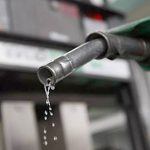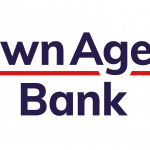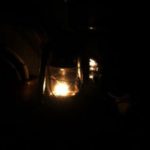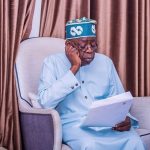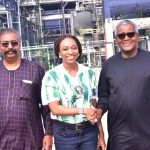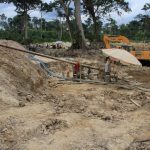Economy
Bonny Light Gains 4.48% as OPEC Basket Hits $45.34
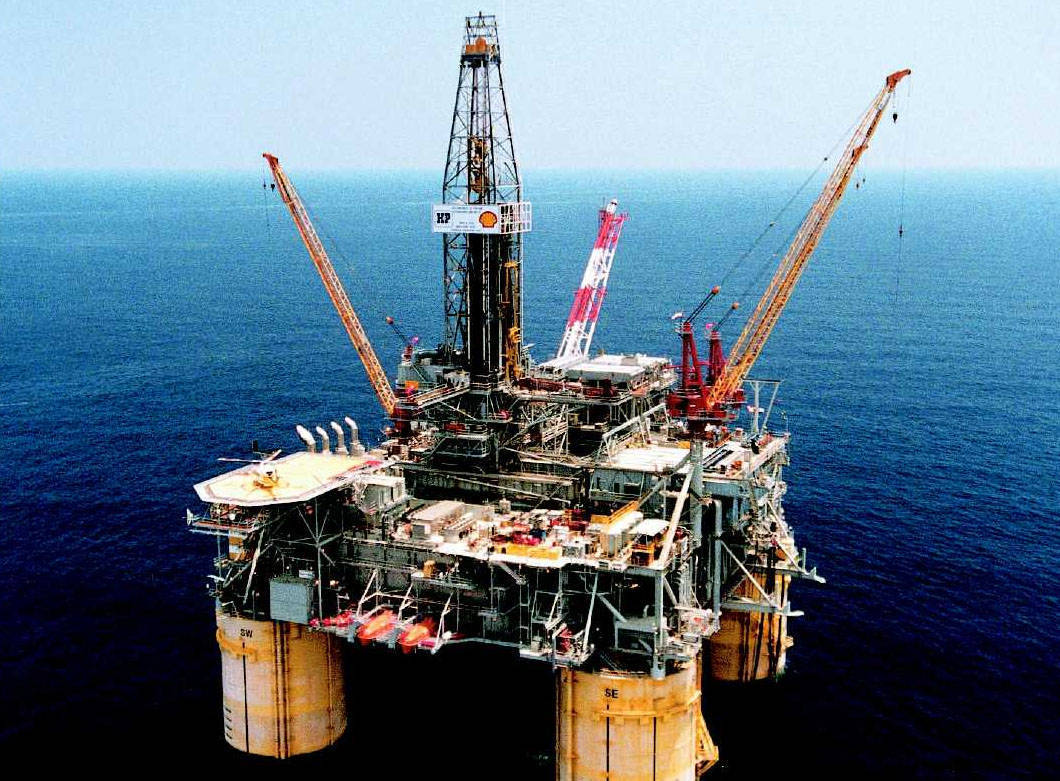
By Adedapo Adesanya
Nigeria’s headline crude, Bonny Light, rose by as much as 4.48 per cent to sell for $45.75 per barrel on Wednesday, August 5, 2020.
The oil led the crude basket of the Organisation of the Petroleum Exporting Countries (OPEC), which rose by 2.4 per cent or $1.07 yesterday to trade at $45.34 per barrel.
According to the latest calculation from the cartel’s secretariat on Thursday, the average price of the 13 crudes in the basket was higher by $1.07 when compared with the previous day’s value of $44.27 per barrel.
The Bonny Light, as earlier stated, led others headline crudes from member nations such as Saharan Blend (Algeria), Girassol (Angola), Djeno (Congo), Zafiro (Equatorial Guinea), Rabi Light (Gabon), Iran Heavy (Iran), Basra Light (Iraq), Kuwait Export (Kuwait), Es Sider (Libya), Arab Light (Saudi Arabia), Murban (UAE) and Merey (Venezuela).
The gain was spurred by a weaker US dollar, a situation that was supportive for oil prices as it makes dollar-priced oil cheaper for holders of other currencies.
The dollar index, which measures the greenback against a basket of six major currencies logged its biggest monthly percentage fall in a decade in July, down as much as 0.03 per cent on Wednesday.
The market also received a boost from the US Energy Information Administration (EIA) data showed that crude oil inventories shed 7.4 million barrels during the week to July 31.
This marked another week of a drop from the previous week after inventories had lost as much as 10.6 million barrels, after a build of 4.6 million barrels for the second week of July.
In other OPEC related news, oil exports from OPEC’s Middle East producers with the exemption of Iran rose in July after Saudi Arabia and key Persian Gulf allies reversed the voluntary production cuts, they had made the previous month.
Kuwait and the United Arab Emirates led the gain in last month’s oil supplies to international markets, with Saudi Arabia increasing less quickly and Iraq barely changed.
Saudi producers boosted shipments by 190,000 barrels a day, far less than its increase in production, possibly signalling domestic crude use has soared with summer temperatures.
The four nations boosted crude and condensate shipments last month by 758,000 barrels a day, or 6 per cent to a combined 13.68 million barrels a day, tanker-tracking data compiled by Bloomberg show.
The increase reversed the previous month’s drop, as the region’s producers restored more than 1 million barrels a day of production that they removed from the market in June.
The output from the four producers, which account for about 72 per cent of production among members of the OPEC, rose to India and China.
On the other hand, data showed that shipments to South Korea slumped, possibly due to refiners opting for supply from the US Gulf Coast.
Economy
Nigeria to Dominate Refined Petroleum Products in West Africa
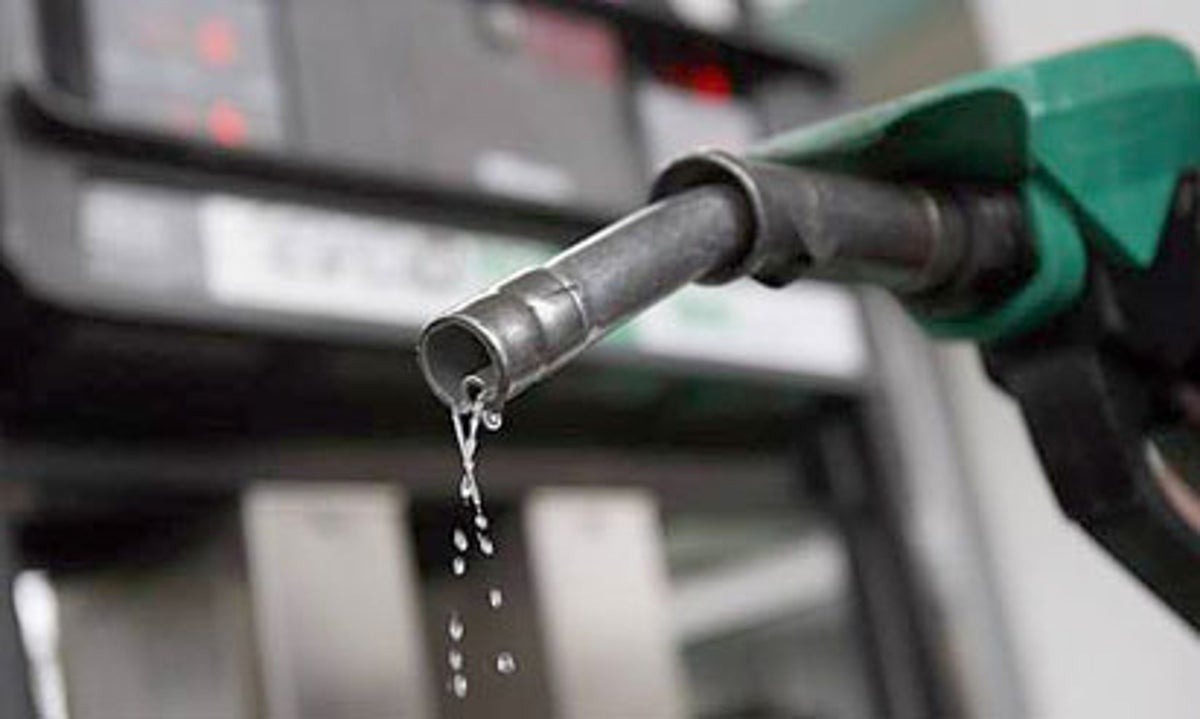
By Adedapo Adesanya
The federal government has reaffirmed its commitment to positioning Nigeria as the marketing hub for refined petroleum products across West Africa.
Speaking during his keynote address at the West African Refined Fuel Market Conference organised by the Nigerian Midstream and Downstream Petroleum Regulatory Authority (NMDPRA) on Friday, the Minister of State for Petroleum Resources (Oil), Mr Heineken Lokpobiri, said recent developments will see the country dominate the market.
Speaking at the conference themed Creating a West African Reference Market for Oil & Gas Products the minister highlighted the government’s strategic drive to support refiners, marketers, and regulators in creating an enabling environment for seamless trading within the region.
“Our ambition is to ensure Nigeria becomes the centre of refined product marketing in West Africa. That is why we are giving continuous support to our refiners and stakeholders to stimulate growth and create a world-class trading ecosystem,” Mr Lokpobiri stated.
He noted that the government’s efforts to boost the midstream and downstream sectors are complemented by sustained progress in the upstream segment.
“We are witnessing considerable growth across the value chain, and this is no coincidence. It is the result of deliberate policy interventions,” he added.
The minister further commended President Bola Ahmed Tinubu for the bold step in removing fuel subsidy, describing it as a catalyst for downstream sector growth.
“The removal of petroleum subsidy is already triggering expansion in the market and encouraging private sector investment,” Mr Lokpobiri affirmed.
The Minister also applauded indigenous operators in the refining space, and further called on both local and international investors to seize the opportunity to invest in Nigeria’s refining sector.
“By expanding our refining capacity, we won’t just meet domestic demand, we will service the entire West African market and beyond,” he stressed.
Economy
NASD Market Cap Jumps 4.16% to N2.127trn in Week 30 of 2025

By Adedapo Adesanya
The NASD Over-the-Counter (OTC) Securities Exchange recorded a 4.16 per cent appreciation in the 30th trading week of 2025 despite closing with lesser price gainers than losers.
NASD Plc rose by 33 per cent to close at N33.25 per unit versus the preceding week’s N25.00 per unit, Central Securities Clearing System (CSCS) Plc added 30.2 per cent to settle at N49.47 per share compared with the earlier week’s N61.00 per share, AG Mortgage Plc improved by 21.1 per cent to N1.09 per unit from 90 Kobo per unit, Friesland Campina Wamco Nigeria Plc grew by 21.1 per cent to N73.84 per share from N61.00 per share, and Afriland Properties Plc surged by 20.6 per cent to N21.10 per unit from N17.50 per unit.
These stocks increased the market capitalisation of the bourse by N84.93 billion to N2.127 trillion from N2.042 trillion, and raised the NASD Unlisted Securities Index (NSI) by 145.05 points to 3,633,79 points from the 3,488.74 points it ended in Week 29.
In the five-day trading week, Food Concepts Plc slid by 4.7 per cent to N3.05 per share from N3.20 per share, UBN Property Plc declined by 3.5 per cent to N1.95 per unit from N2.02 per unit, Okitipupa Plc slid by 2.1 per cent to N234.50 per share from N239.50 per share, Nipco Plc lost 1.9 per cent to sell at N240.00 per unit versus N244.83 per unit, Lagos Building Investment Company (LBIC) Plc went down by 1.3 per cent to N3.08 per share from N3.12 per share, and Acorn Petroleum Plc dropped 0.8 per cent to N1.19 per unit from N1.20 per unit.
Last week, the total turnover by value jumped by 28.8 per cent to N559.6 million from N439.9 million, total volume of stocks rose by 1,002.7 per cent to 1.4 billion units from 127.4 million units, and the number of deals increased by 192.31 per cent to 228 deals from 78 deals.
The most traded stock by value was Industrial and General Insurance (IGI) Plc with N462 million, trailed by CSCS Plc with N30.2 million, Okitipupa Plc recorded N23.1 million, Friesland Campina Wamco Nigeria Plc posted N17.3 million, and Nipco Plc achieved N10.9 million.
By volume, IGI Plc also led with 1.4 billion units, UBN Property Plc closed with 2.5 million units, LBIC Plc recorded 0.77 million units, CSCS Plc quoted 0.63 million units, and Friesland Campina Wamco Nigeria Plc traded 0.24 million units.
Economy
ADC Laments Tinubu’s “Dangerous Obsession With Borrowing”

By Aduragbemi Omiyale
The new major opposition political party in Nigeria, the African Democratic Congress (ADC), has accused the administration of President Bola Tinubu of “fiscal vandalism” because of its “dangerous obsession with borrowing.”
The group, in a statement signed by its National Publicity Secretary, Mr Bolaji Abdullahi, said the National Assembly is also not helping to checkmate the President on this borrowing spree.
The party, while reacting to the approval of the $21 billion foreign loan request of Mr Tinubu a few days ago, said the country’s public debt could go beyond N200 trillion before the end of 2025, with nothing to show for it, demanding a full disclosure of all loan agreements signed over the past 10 years, insisting that Nigerians have a right to know the terms, interest rates, payment timelines, and final recipients of the loans.
“The ADC is deeply concerned by the Tinubu administration’s dangerous obsession with borrowing.
“What Nigerians are witnessing, following the approval of a fresh $21 billion in foreign loans is nothing short of a calculated decision to mortgage the country’s future just to cover up the failures of today,” the opposition party stated.
It further said, “Under President Buhari, Nigeria borrowed an average of N4.7 trillion per year, and even that caused widespread concern. But under President Tinubu, borrowing has jumped to N49.8 trillion per year. In just two years, this administration has borrowed more than ten times what Buhari borrowed in the same timeframe.
“At this rate, Nigeria’s total public debt will crash through N200 trillion before the end of the year. We are speeding toward a financial cliff, and those in charge seem to have no brakes, thinking they can borrow their way out of economic problems that require more thoughtful actions and greater fiscal discipline.
“Supporters of this government like to argue that Tinubu’s borrowing is smaller in dollar terms, just $1.7 billion annually, compared to Buhari’s $4.15 billion. But that argument collapses the moment we look at the exchange rate.
“With the Naira now in free fall, again thanks to this administration’s poor police choices, these same loans are costing the country far more. When converted to Naira, Tinubu’s foreign borrowing amounts to N25.5 trillion every year, more than Buhari’s annual average of N2.2 trillion. What we are witnessing is the deepening of a debt trap created by economic mismanagement and a collapsed currency.”
“Over $35 billion has been borrowed from external lenders alone in the last decade of the APC. This is nearly 12 times more in just 10 years.
“Our debt to the World Bank has tripled. What we owe in Eurobonds has grown eleven times over. And now, this government wants to borrow even more, pushing our foreign debt ceiling to $67 billion.
“This reckless borrowing, repeated year after year, with no plan to repay it, and no effort to use it productively, will leave our children repaying debts that they did not incur or benefit from.
“The debts have continued to mount, but infrastructures have remained poor, universities are still grossly underfunded, hospitals are still ill-equipped and electricity supply are as poor as ever.
“So, what exactly are these loans used for? This is the question that Nigerians expect the National Assembly to ask. Instead, it has continued to approve these loans without asking the hard questions, without demanding a plan, and without standing up for the Nigerian people.
“According to the Association of Small Business Owners of Nigeria, the cost of Tinubu’s borrowing is already crushing the very backbone of our economy.
“Small businesses can no longer access credit. Investors are losing confidence and pulling out. And because over 60 percent of our national income is now used to service debt, the government is turning to ordinary Nigerian families and taxing them beyond their limits.
“While other countries are fighting to reduce their debts, the APC is taking out more loans. The recent devaluation of the naira should have reduced the need for external borrowing, but instead, the government has treated it as an excuse to borrow even more,” the statement said.
-

 Feature/OPED5 years ago
Feature/OPED5 years agoDavos was Different this year
-
Travel/Tourism9 years ago
Lagos Seals Western Lodge Hotel In Ikorodu
-

 Showbiz3 years ago
Showbiz3 years agoEstranged Lover Releases Videos of Empress Njamah Bathing
-

 Banking7 years ago
Banking7 years agoSort Codes of GTBank Branches in Nigeria
-

 Economy2 years ago
Economy2 years agoSubsidy Removal: CNG at N130 Per Litre Cheaper Than Petrol—IPMAN
-

 Banking2 years ago
Banking2 years agoFirst Bank Announces Planned Downtime
-

 Sports2 years ago
Sports2 years agoHighest Paid Nigerian Footballer – How Much Do Nigerian Footballers Earn
-

 Technology5 years ago
Technology5 years agoHow To Link Your MTN, Airtel, Glo, 9mobile Lines to NIN





